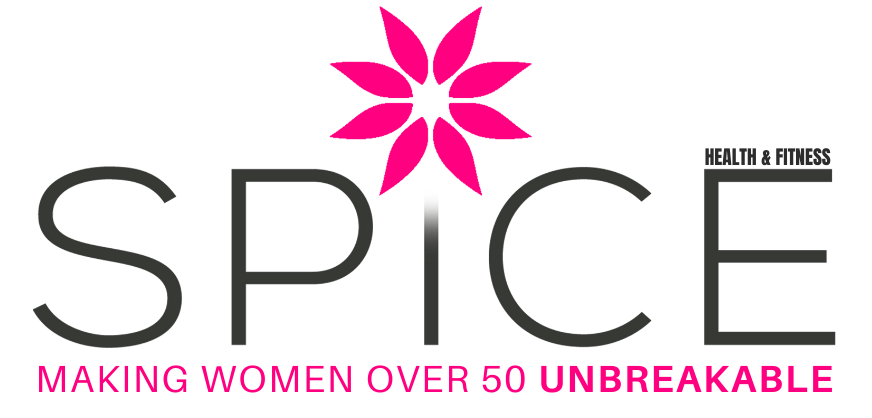Watch or Read Mary-Ann's journey how she is maintaining a strong body with Functional Neurological Disorder.
Read Video Transcript:
Hi everyone, thanks for joining us today. I'm really pleased to have here today with me, Mary Ann, who's 62 and we're going to have a bit of a chat about FND, ie. Functional Neurological Disorder and how Mary Ann has been able to maintain a strong body throughout these years.
Mary Ann, when were you diagnosed?
About 13 years ago and I was about 49 when I first was diagnosed.
And the exact causes are known, is that correct.
Function Neurological Disorder may occur suddenly after some stressful event, a physical trauma or something like that.
And they basically say that a part of the brain that controls the functioning of your muscles and senses may not work properly, but there's no actual disease or abnormality of the brain.
So we're just going to have a bit of a chat about what it's like to live with this and how you've been able to get yourself through it. So what were your signs and symptoms that you first experienced?
I started off with heavy arms and a lot of aches in my body. I was originally diagnosed with fibromyalgia. And as I was being treated for that, slowly I would get periods of time where my walking would become uncoordinated. And I just thought that was a bit odd and I never really thought much about it. My migraines also increased significantly. I was going through menopause.
So everything was happening. And I would know, for one instance, I went to a hospital with a migraine, pain in my neck. They gave me a nerve block and kept me over night and in the morning I just simply didn't remember how to walk. And that sort of became my norm.
But then slowly my body closed in and my walking became more and more difficult. And there were a lot of other symptoms, bladder problems. Everything was affectedby it. And I then was admitted to hospital because I was slightly forgetting how to walk. And I was hospitalised for five weeks.
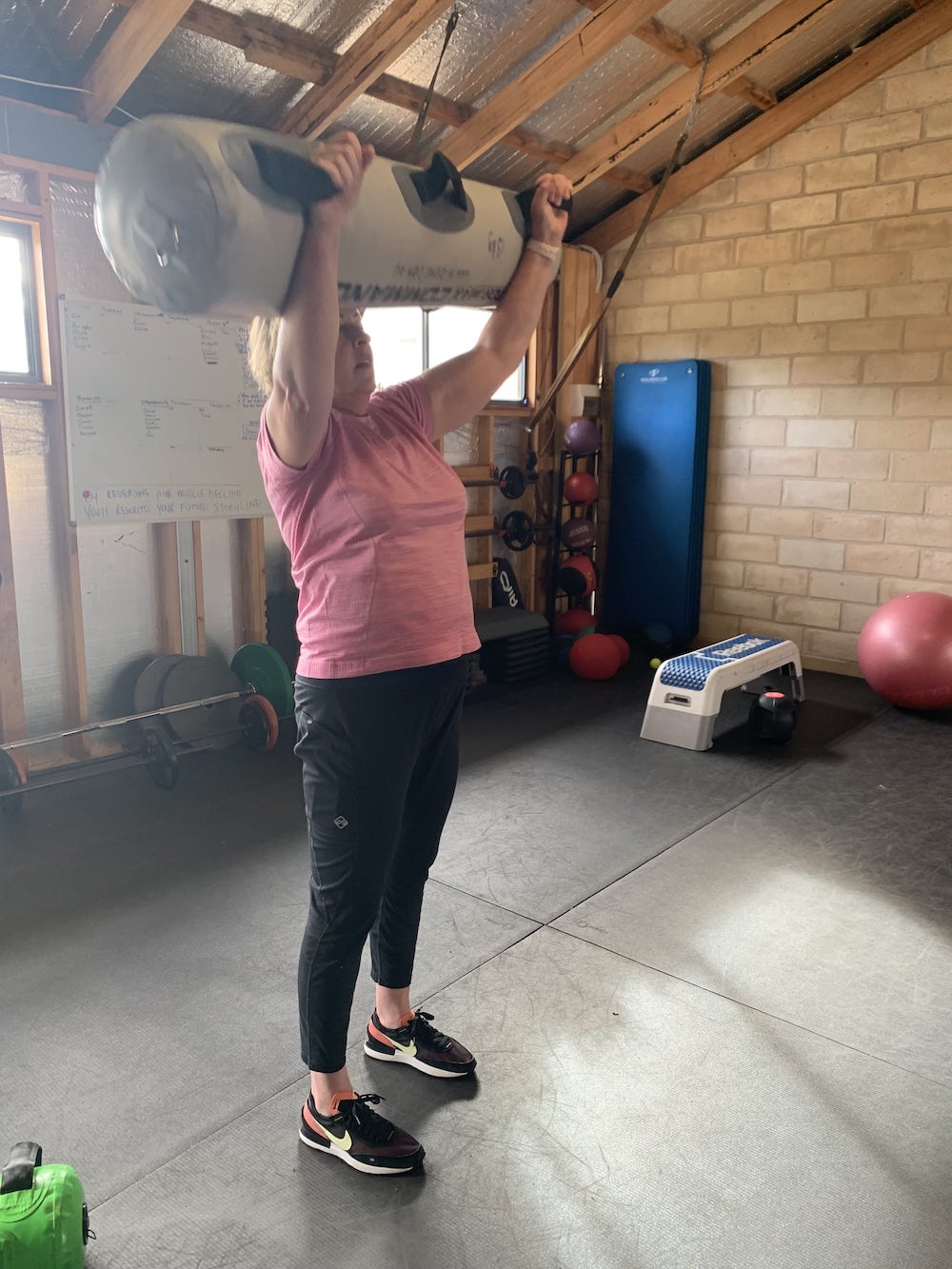
And you couldn't walk that whole time you're in there?
I could walk. I had to be taught how to stand up, how too, you know, with a sit stand. Everything I couldn't write. I couldn't read. So many things just left. And it was like having chronic fatigue with and also losing the ability to control, you know, talk to your body and tell it what to do. And your body not responding.
So that must have been a really hard time. Did you know what was going on at the time? Did they, had they diagnosed it or were they still trying to work out what to do?
There has been with Functional Neurological Disorder, what I'd call a fluffy approach to diagnosing people or telling people of their diagnosis because it's not talked about widely.
And there is a belief that you can have trauma from just the diagnosis. And so they sort of tell you in such a way that you're already not understanding why your body's not doing what it is. Your brain's not functioningproperly. And they're telling you something that seems so bizarre, that it's very hard for you to take it in. So I am sure that I probably was told, but not necessarily in a straight out.
You have FND and this is what it is. So in a way that wasn't particularly helpful for me. Yeah. So when they told you, well, when you were in there for that time for the five weeks, did they give you hope that things were going to get back to what you were pre this or did they say that you were always going to struggle and have a hard time?
They said that this could be with me for the rest of my life, butI could improve. And some people do get out of it. And some people go on to not have relapses or have a normal life. I felt that if you did the right thing, you really wanted to engage with rehab, do all those things. You obviously had a better chance.
That's so true. And prior to this, were you fine? Like prior to this moment in time, when you couldn't walk and couldn't do anything, you were okay? Or had you had like a glimpse of this coming and going? In hindsight, I probably had a few glimpses.
I had glandular fever where I couldn't walk for about three days. I just sort of slowed down and I thought it was very strange, but you know, I thought, well, maybe this is part of it. I've had a few incidents through my life that I think I've probably had little glimpses that this is something that I might be affected with in my life.
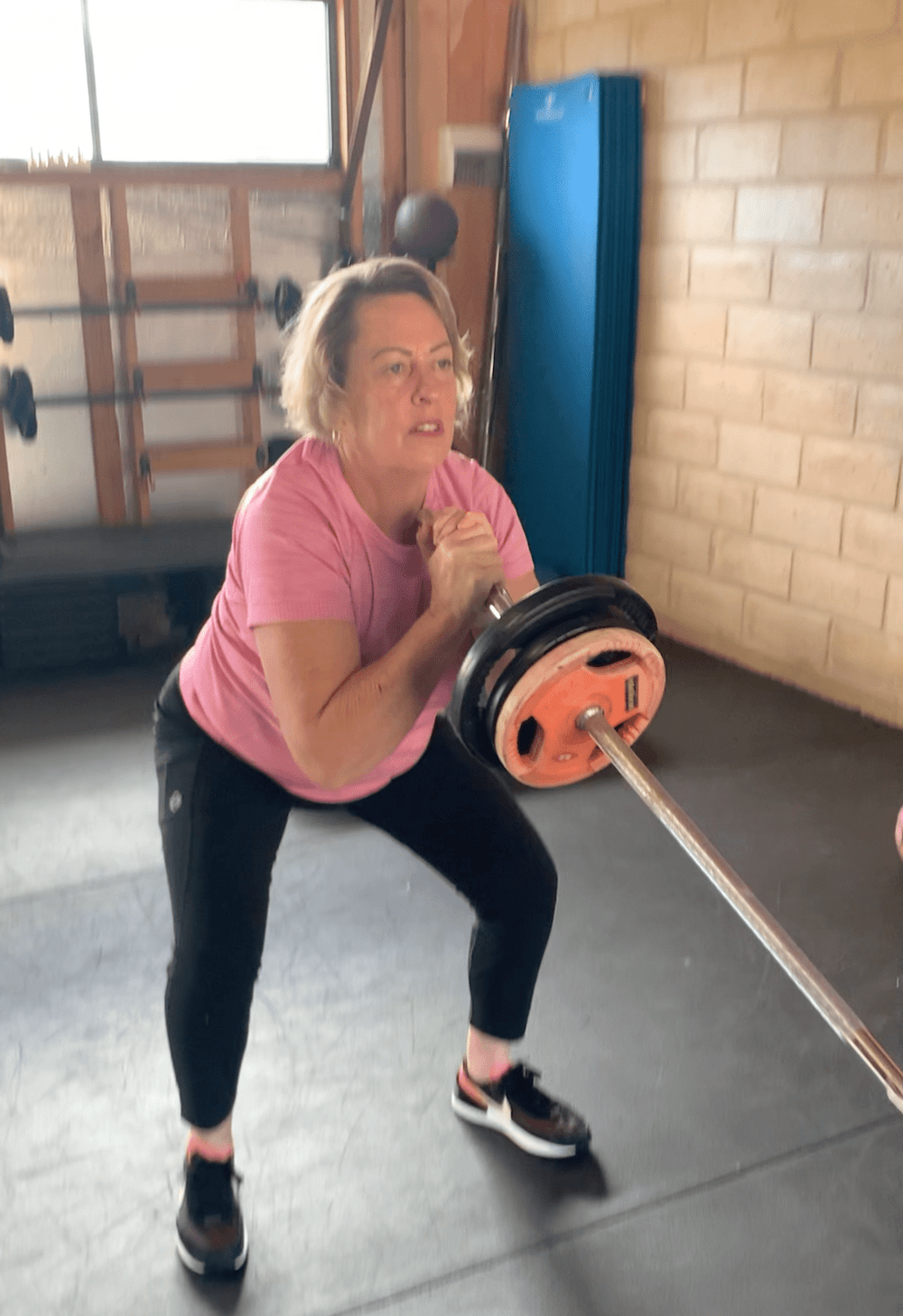
Wow. So you were in there for that five weeks and when you came out, did you explore all sorts of ways that you could move forward from here? Or were you just going with the advice that you got from your doctor and remember you're under?
Well, I went to rehab. I was given a program through rehab. So I did physical exercises. I did art therapy. I did, you know, I saw a psychologist. I did everything that I felt that I should do and was asked of me. I went to hydro therapy as well.
So I did everything, but then there comes a time that you're released from the system and you have to find virtually your own way. And the thing with FND is there is no clear picture of how to get out of it or, you know, how to cure yourself.
So obviously talking to, if you have any chronic condition, you're going to have low mood. So talking to a psychologist and adapting to your new situation, everyone would need it. It's not just someone with FND. So I did that religiously. I did all. I went swimming, a version of swimming, but still swimming while I was doing rehab and many, many sorts of programs over many years.
Wow. So what made you then decide to get into strength training specifically, like just really getting your body to work hard? What made you turn to that route?
Prior to getting this condition, I did bush walking and I did it with a group and I never felt stronger. You know, I could feel my muscles. I was powerful and I was probably the fittest I'd been in a long time. So I felt like that had been stripped away from me. So I had done rehab and done all those sort of things. And I made a decision that I was going to enjoy my life.
Whether I had Functional Neurological Disorder or not, I was not going to be chasing the miracle. I was going to be chasing things that gave me pleasure.
And my pleasure was feeling strong.
And even in a fatigue body, you can feel strong. Even in a body that doesn't work, like you want it to work, you can still be strong. So for me, it was important that not only I was strong mentally, that I was strong physically and that would help me in every part of my life.
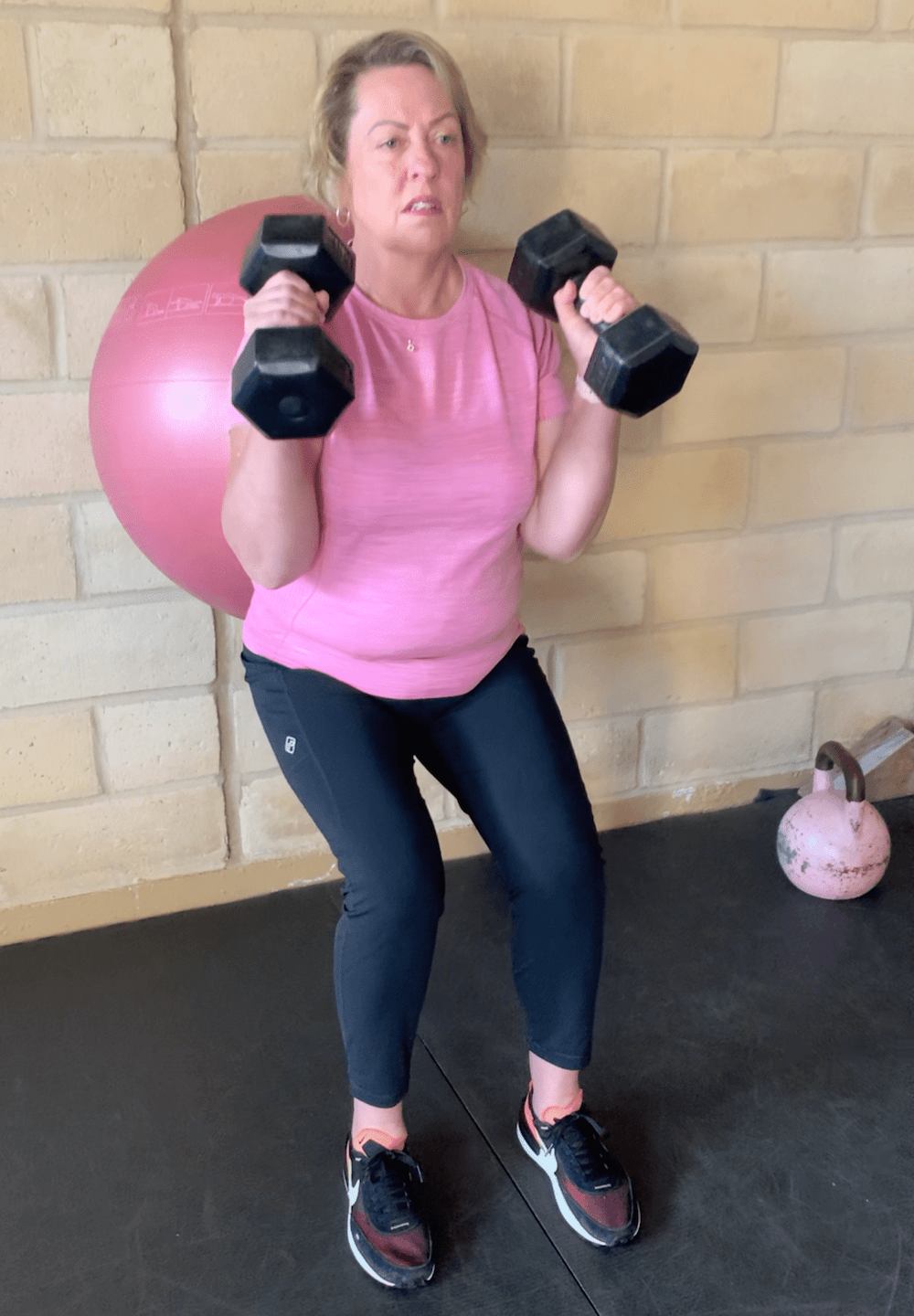
That's so good. So currently, so this is quite a way down the track and you can't really do strength training three times a week. And I must say I get amazed because there's things that maybe you can't do sometimes, but your head will let you work it out or not work it out.
So we try and work it with your head, what you can do and what you can't do. And I was just saying to Mary Ann today that if I get Mary Ann to lift up a leg, she can't lift up the leg. But today, we're able to balance on a really unstable surface on a both shoe and she was able to lean forward with a leg way up in the air doing so much workand that brain had worked so hard.
But it was all, and I was saying, how come you can do that, but it's because of the lean of her body forward and she didn't, it wasn't trying to actually lift up a leg, but it was all with part of that. So the whole time that I'm a trainer, as a trainer, I'm one of her trainers, she's got one other trainer. And so it really is just playing around with what you can and can't do. Don't you think? And I think that's everyone no matter what you've got, can actually do something.
And Sheree is very good because she adapts the exercises to my strengths and we find other ways to do things.
And so I don't miss out. I'm still doing and I don't care if it doesn't look like someone else. I still know I can do myversion and my version is fine.
You're right. And you don't do small weights. You do big weights. I had you with some big stuff today, but you'll also see this obviously will cut in and out of Marianne doing some stuff as she's training. So you'll see her doing some quite big stuff.So we certainly don't make it small. Your body can do it. And if we can do it, that's what we do. But it hasn't stopped you from doing anything.
When you walk, Marianne, your gate has a bit of a weird strain. I don't know. It's just called a stranger weird, but your own characteristic way. So that's not ever come back to your normal looking.
No. And no, my gate is weird and it looks different and whatever, but I've come to accept it. And it's my normal. Of course, in a perfect world, I'd like it to look like everyone else. I want to blend in, but I don't have that choice. And I'm not going to beat myself up over it. And I'm determined to just be me.
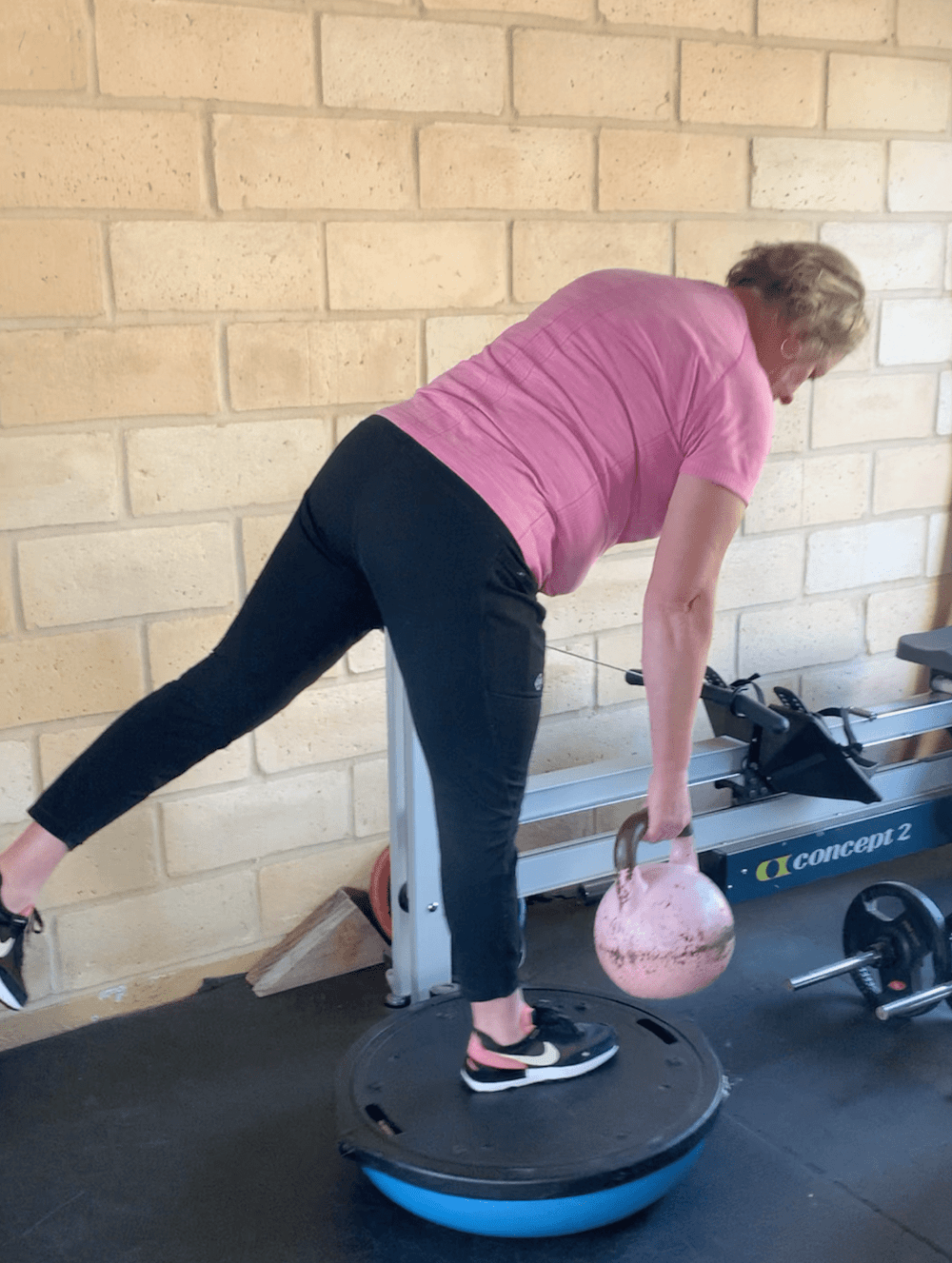
And I love that about you. You were determined. And that's what I absolutely love. And as a part of this whole FND, you also have some little ticks and things just explain a bit of that.
Yeah. I mean, I didn't initially. When I first was diagnosed, this has sort of evolved over the years. And it's a bit like having Tourette's. Obviously, I have hand movements. I have verbal words, fortunately, no swear words, but still some interesting words. And they're an impulse that I can't control, even if I want to. And I've just learnt to, they're part of me and my grandchildren even use some of the words when they have an accident.
I think, well, no one else is going to know why they're saying this word. But I've done it so long that I'm not particularly fast about it. I do worry that it upsets other people. But in the scheme of things, it's not my problem.
No, it's not your problem. You're right. So are you liable to have it get worse, like, and actually going to relapse if things get like, do you have to be careful of how you live your life now so you don't relapse?
Well, I would say probably part of the reason that I got it in first place is my personality. And my personality is that I go, go, go. And I don't necessarily always listen to my own needs. So it's very hard to change your personality. So I do try and be mindful of being a little bit more considerate towards me. And I do try and eliminate some of the things that I don't need to worry about or do if I find them stressful. But if I want to do something, I won't let it stop me. So I don't know.
Anything else you think that you, we haven't sort of talked about today before?
I just think there's hope. Yeah. There's hope out there for anyone that gets this diagnosis of Functional Neurological Disorder.
And, you know, I'm not unhappy. I don't feel why me. I don't feel any of that. I just want to get the word out there about FND. And take the shame away from it and make people aware of it because it can happen to any of us. And I'm not that weird. It can happen to anyone.
So you're a mum of five and they're all growing up kids and you do a fair bit for the grandkids. You drop them off at school. So you live a full, full life.
I live a full life.
So there's going to be someone out there at home that thinks, oh my gosh, that's somebody that's me or somebody I know. What would you say to them today? If they're going, I can barely move. I'm struggling to even like you get along to a trainer. They're struggling to know how to move. What would you say to them?
Like just find who you can and get there and start to work on your body. Do something. Set goals, set realistic goals for yourself. You can always do more. You can always. But do things that you enjoy. We all do incidental links exercisein every day life. But working with groups is great because it gives you that social thing, support. And yes, we can all do more. And mentally we need to exercise. I think so.
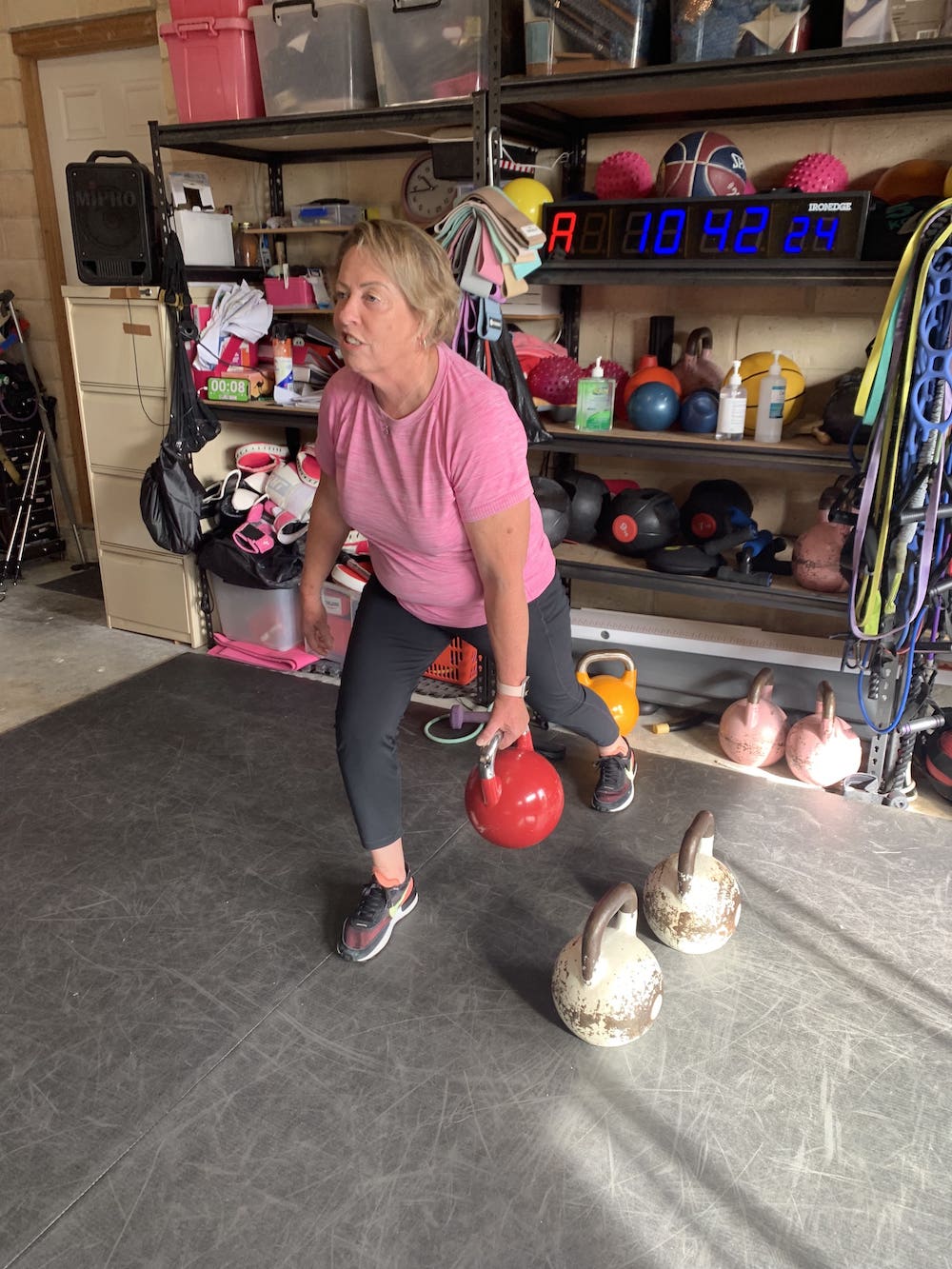
And look, I'm a big proponent. If you see my stuff before I'm a big proponent, I'm getting your body strong regardless of who you are. Regardless if you're hardly, somebody that can hardly move or some it's on sticks, you can still get your body in a move.
And it's amazing because when you get a strong body, you're just saying today, you get a strong mind. Absolutely. So strong body, strong mind. And you then kind of can do a little bit here. And then you move on and do more. Whether I had this condition or not. And you know, I'm working with what I've got. Like we all have to have. We all have something. We do. So I think that's great.
So thank you so much, Marry Ann, and I hope that somebody at home or if you know of somebody that can be inspired by this little Jack today.
So thank you so much for joining us and thank you. Thank you.
